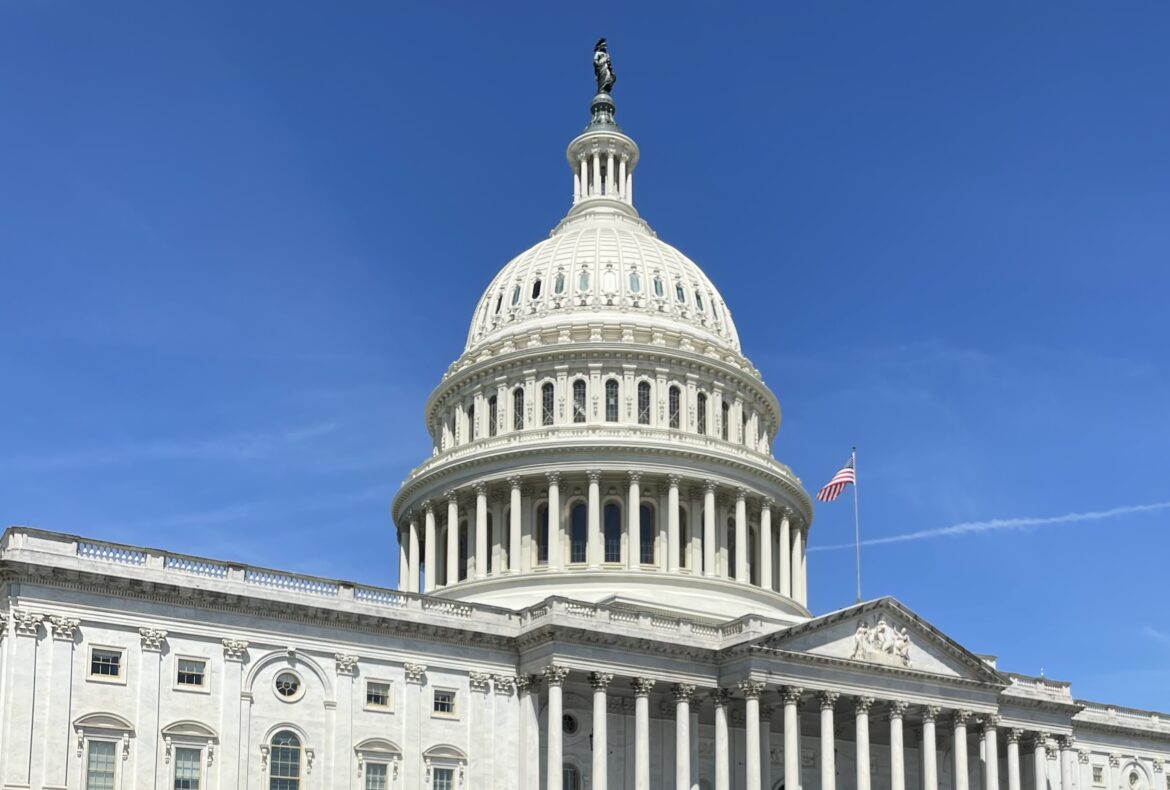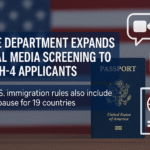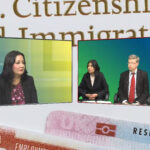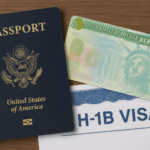Under the One Big Beautiful Bill Act (OBBA, Public Law 119-21), which took effect on July 4, 2025, the U.S. government introduced a new Visa Integrity Fee. This $250 fee applies to most commonly used visa categories, including B-1/B-2 (visitor visas); H-1B and L-1 (work visas); E-1/E-2 (investment visas); and O and P (entertainment and sports visas), among others. Visa-exempt countries are not subject to this requirement.
Starting October 1, 2025, under OBBA, all successful U.S. nonimmigrant visa applicants will be required to pay this fee in addition to the existing Machine-Readable Visa (MRV) and reciprocity fees.
This fee aimed at visa compliance will make U.S. travel costlier and add an additional burden to employers and foreign nationals. A family of four seeking U.S. Visitor Visas, for example, will pay $1,000.00 more. This will especially affect the Indian diaspora who travel to the U.S. for pleasure, business, or work. Similarly, employers of H-1B, L-1, and other work visa categories must note that the cost of their employees’ U.S. visas will increase, while also facing heightened scrutiny of visa compliance.
Visa applicants are already experiencing delays due to a lack of appointments and embassy staffing shortages. This fee will affect worker mobility and availability if visa approvals take longer due to increased scrutiny, or if U.S. consulates deny subsequent visa renewals for noncompliance, creating further uncertainty.
How will the Visa Integrity Fee work?
Under Section 100007 of Title X, Subtitle A, of the law, the $250.00 Visa Integrity Fee will be required “at the time of issuance” of the visa. Applicants should therefore be prepared to pay this additional $250.00 per applicant if their visas are approved. The new fee applies to all nonimmigrant visa applicants before U.S. embassies and consulates abroad. This fee does not apply to extensions or change-of-status applications filed with United States Citizenship & Immigration Services (USCIS).
Denied visa applicants will not pay this fee.
Visa Integrity Fee as a deterrent: Visa compliance tied to reimbursement
The stated goal of this Visa Integrity Fee is to deter visa overstays and ensure visa compliance. By requiring applicants to pay this additional $250.00 per applicant, the U.S. government hopes to discourage overstays or abuse of visa status.
While paying the fee will be straightforward, obtaining reimbursement will not be. The government has yet to issue additional guidance, so it is unclear how compliance will be monitored and tracked. Because reimbursement is tied to compliance, the government hopes this new fee will encourage applicants to leave the country when their permitted time ends.
How does reimbursement of this fee work, and what steps can you take to get your money back?
Applicants must comply with “all conditions” of their visa and must not have worked without authorization to qualify for reimbursement. The law states that this fee “may be reimbursed” at the end of the visa validity. For example, visitors from India with a 5-year or 10-year B-2 visa may not be eligible to receive reimbursement immediately after returning from their U.S. trip but must wait until their visa expires to become eligible.
Visa applicants must show they did not seek renewals and that they left the country on time. If they choose to extend their U.S. stay, they must apply in advance and receive extensions during their period of admission. This requirement may pose logistical problems, as USCIS renewal applications often take a long time, with approvals issued well after the permitted period of stay.
It is also unclear how the government will require applicants to demonstrate they have complied with “all conditions” of their visa. Will it be based on applicants’ attestations under penalty of perjury, or will additional data be required to prove compliance? Answers should become clearer once the government issues more guidance.
While compliance has always been important, it is now critical not only to ensure compliance but also to keep and maintain thorough records of U.S. travel and activities while in the country. Documentation will be key to demonstrating compliance.
All visa applicants should:
- Be prepared to pay the fee and hope that visa compliance leads to reimbursement. Given the long validity of some visas and the challenges of obtaining reimbursements from the government, applicants should manage their expectations.
- Keep detailed records of their U.S. travels and activities to demonstrate compliance.
- Be prepared to answer questions about their U.S. travel and activities, even years after their trip. It is therefore critical to keep accurate records of travel dates, the intended purpose of the visa, and how that purpose was fulfilled.
Whenever you visit a foreign country, especially the United States, you must always follow the laws and rules of the host country. Now more than ever, it is important to do so – because your own money is at stake.
(This content is for informational purposes only. It does not constitute legal advice, nor does it substitute legal advice.)
Disclaimer: The opinions and views expressed in this article/column are those of the author(s) and do not necessarily reflect the views or positions of South Asian Herald.






